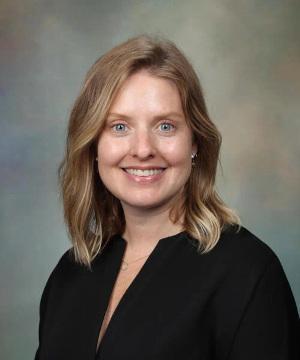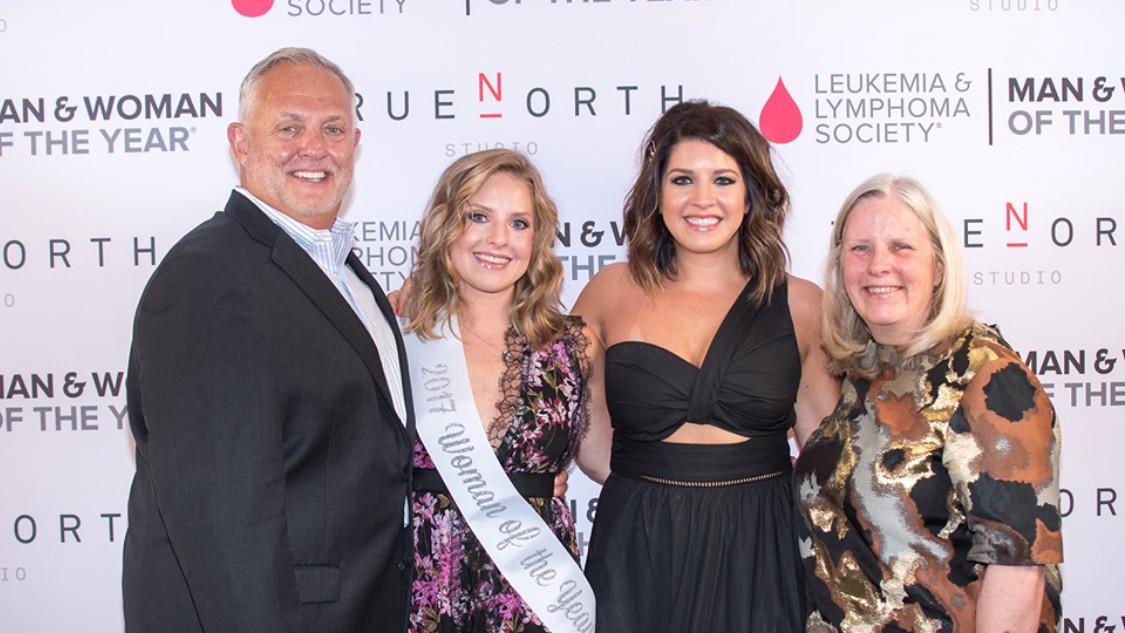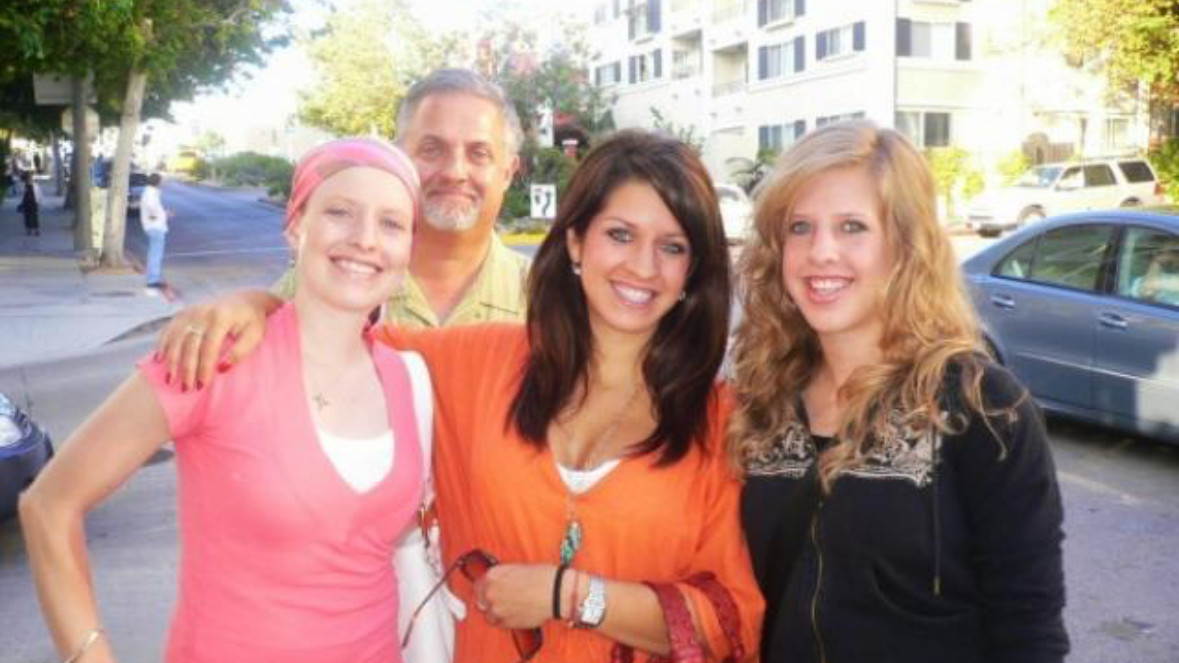Think of spring break: warm sunny skies, a refreshing drink, and hopefully, a feeling of freedom.
Allison Rosenthal was dreaming of all of it in her second year of medical school. But instead of getting on a plane to meet friends, she went to the emergency room, and soon found out that she had acute promyelocytic leukemia (APL).
But her story didn’t end there. She pushed through multiple years of challenging treatment, and her medical studies on top of that. Now in remission, she's a hematologist-oncologist specializing in lymphoma. And many of her patients are teens or young adults—just around the age she was when she was diagnosed.
We asked Dr. Rosenthal to share more of her story—from being a patient to becoming a survivor and now, an oncologist.
Q: How did it feel to receive a leukemia diagnosis as a medical student?
A: I had gone to our local ER thinking I had the flu, because I had a fever and was tired and throwing up. They started me on IV fluids, and then the next person I met was a hematologist. They said something about blood cancer, and then asked, “Do you want a bone marrow biopsy now or later?” And I said, “What? Are you saying I don’t have the flu?”
My oncologist was very kind and understanding about the fact that I was studying medicine. He would always go over my labs with me and ask me what I thought. He involved me in my own care process, which I found really valuable. It felt good to be part of it, to understand what exactly they were looking for and feel like I had some say. But not everyone with a blood cancer diagnosis might have my background, and as an oncologist, I try to be as collaborative and supportive as my own doctors.
Q: What are some of your most memorable moments as a blood cancer patient?
A: I had a pretty serious infection during my first round of chemotherapy. I had to get a PICC (peripherally inserted central catheter) line to get antibiotics, and then that got infected as well. That was a lot for my family to take on. But I say this to a lot to my patients now: you’re still your parents’ baby when you need them.
There was also a pill that was a major component of my leukemia therapy, and at one point, our insurance company said, "We’re not paying for that anymore”—without any regard for the impact that had on my life. At the time, the pills were $70 each and I had to take seven of them a day. (For those counting, that’s nearly $500 a day.) Fortunately, my oncologist’s office knew of financial assistance programs, but it was so alarming.
On the other hand, I remember exactly where I was sitting when I got the phone call that my first bone marrow biopsy after chemotherapy was clear. That was a good day.

Q: Now, as a hematologist-oncologist, what have been some challenges you've seen your own patients face? What have been some of their highlights?
A: Some days are really hard, and some days have big wins and milestones. My situation isn’t exactly like my patients’, but I can appreciate the uncertainty and fear at the beginning, and the importance of feeling confident in your team, like you’re in good hands when your life is on the line.
I fight hard for them because I know just how important some of the little things are. They ask, “Can I still go to school?” Yes, absolutely. Let’s try to keep things as normal as possible. Or, “I’ve got a five-year-old at home. How do I explain to them that Mommy’s going to lose her hair?”
I keep a running list of my young adult patients, because it’s fun to celebrate not just your cancer being gone, but also that you graduated from school, or you had another kid, or you saw a loved one get married. There are so many things we as doctors get to be a part of, because we become surrogate family members.
Q: Why did you decide to focus on treating adolescents and young adults?
A: I realized in going through treatment myself that people just didn’t get it. Nobody recognizes how interruptive it is to have cancer in your developmental years, when you’re supposed to be forming relationships and starting careers and figuring out who you are as a person.
I think patients in that age group should have more attention and more research. Has anyone actually asked: What is your job? Can you work around your treatment? Are you going to fall off your parents’ insurance? Are there opportunities for scholarships so we can help you succeed? These are all things we have to pay attention to so patients have their best chance at getting well.
It makes them feel like they’re not a number, and like what’s important to them is also important to their medical team. It’s important to take care of people as a whole, realize they have lives, and that other people are impacted by what they’re going through.
Q: Is there anything you think isn’t getting addressed with patients at this age?
A: There’s often no discussion of what survivorship looks like. This is a traumatic experience, whether it was short or long, hard or easy. For a lot of people, your support network gets larger when you get diagnosed with cancer, and then when you tell people you’re in remission, unintentionally a lot of that support network fades when you may still need it.
At the end-of-treatment visit, where we’re going over scans or results, I always make that visit a little longer. I talk to people about the longer time period between visits that’s about to happen, because that can be overwhelming. We talk about how to know what is okay and what they need to call us about. I always emphasize: “You’re not bothering us. Call us.” We have to personalize that and recognize that it’s a big transition.

Help begins here
From big questions about school and dating to dealing with difficult physical and mental changes, a blood cancer diagnosis makes growing up that much harder. Teens and young adults like the ones Dr. Rosenthal treats need all the support they can get—support that’s specific to their experiences.
The Leukemia & Lymphoma Society is here to help, with plenty of free resources to get started:
If you’re a young person facing blood cancer, you're not alone. Learn more about Dr. Rosenthal’s experience in her own words, or reach out to LLS today.
Be a part of someone's story.


